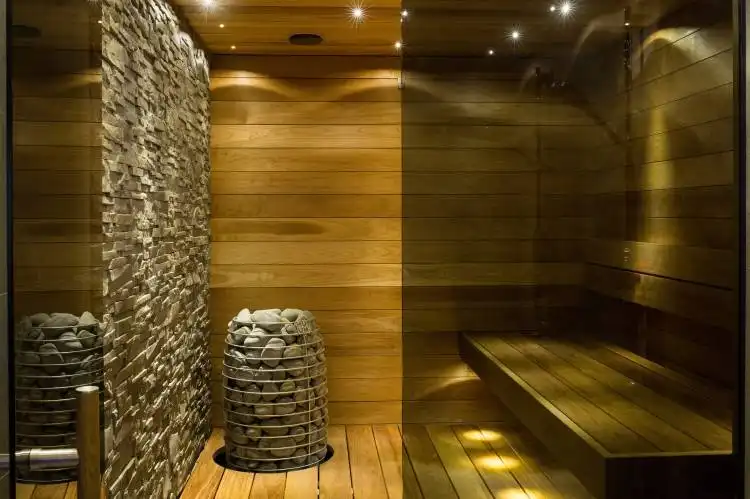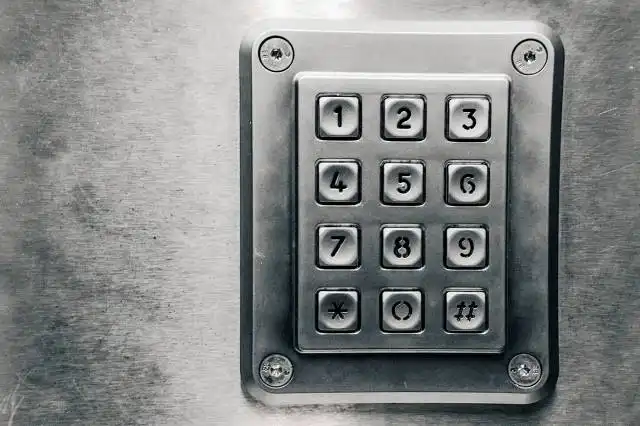Start a Pool Installation Business
Diving into Dreams: Venturing into the Pool Installation Business
| Updated


POOL INSTALLATION BUSINESS
Embark on a splashy journey with a pool installation business and dive into profits today! This venture is all about designing, installing, and maintaining both public and private swimming pools. Make your clients' dreams of sun-soaked lazy afternoons a reality and remember: when life gives you a pool installation business, help others make pool parties. With ever-green demand in sunny areas, who knows, their laughter might just be the soundtrack to your success.
Jump to Business Plan
RELATED BUSINESS IDEAS
Browse ALL Home Improvement & Repair Solutions Business Ideas
Discover Your Perfect Domain
Unlock the door to your online success with our hand-picked selection of premium domain names. Whether you're starting a new venture or rebranding an existing one, the right domain can set the tone for your digital presence. Browse through our curated list, each with its unique potential to enhance your brand's visibility and credibility.
POOL INSTALLATION MINI BUSINESS PLAN
This a quick reality check to help you identify the strengths and weaknesses of your business concept before you dive in.
Expected Percent Margin:
- Gross Margin: 25-35%
- Net Profit Margin: 10-20%
Earnings Expectations:
- Daily Earnings: $250 - $750
- Weekly Earnings: $1,750 - $5,250
- Monthly Earnings: $7,000 - $21,000
- Annual Earnings: $84,000 - $252,000
Actions to Achieve These Numbers:
Marketing and Customer Acquisition:
- Local Advertising: Utilize local media channels, mailers, and community bulletin boards.
- Social Media and Digital Advertising: Leverage platforms like Facebook, Instagram, and Google to promote services and generate leads.
Sales and Operations:
- Quotes and Sales Funnel: Provide quotes in-person & online, follow up promptly.
- Efficiency: Aim to complete 1 pool installation per week.
Cost Control:
- Supplies: Establish contracts with suppliers and buy materials in bulk or on discount where possible.
- Labor: Hire experienced workers and provide training to improve efficiency and decrease labor time/cost.
Networking:
- Relationship Building: Develop strong relationships with local homebuilders, landscapers, and suppliers to create a reciprocal referral network.
- Customer Service: Provide excellent customer service to stimulate referrals and repeat business.
These are generalized estimations and can vary greatly depending on location, the size of pools you’re installing, and current market trends. Always consult with a financial advisor for personalized advice.
NOT WHAT YOU HAD IN MIND? Here are more ideas



Browse ALL Home Improvement & Repair Solutions Business Ideas
Grab Your Business Website Name
Before you get caught up in the whirlwind of setting up your business, invest in a domain name. It's a small but significant step that lays the foundation for your brand and makes it easier for customers to find and trust you. Just like you wouldn't build a house without securing the land first, don't build a business without securing your domain name.
"Why? Can't that wait?" Here's why it shouldn't
Step 1: Determine if Starting a Pool Installation Business is Right for You
Breakdown of Startup Expenses
Before starting a pool installation business, it is important to understand the startup costs associated with the venture. This includes the cost of the necessary equipment, such as a truck, tools, and other supplies. Additionally, you will need to consider the cost of licensing and insurance, as well as any fees associated with registering the business. It is also important to factor in the cost of marketing and advertising, as well as any costs associated with hiring staff.
Breakdown of Ongoing Expenses
Once the business is up and running, there will be ongoing expenses to consider. This includes the cost of supplies, such as chemicals, filters, and other materials. Additionally, you will need to factor in the cost of labor, such as wages for employees and subcontractors. You will also need to consider the cost of insurance, as well as any fees associated with maintaining the business.
Examples of Ways to Make Money
There are several ways to make money with a pool installation business. The most common way is to charge customers for installation services. Additionally, you can offer maintenance services, such as cleaning and repairs. You can also offer additional services, such as pool accessories, pool covers, and pool liners. Finally, you can offer pool design services, such as customizing the shape and size of the pool.
Step 2: Naming the Business
When naming a business, it is important to make sure the name is memorable and easy to pronounce. It should also be unique and distinct from other businesses in the same industry. Additionally, the name should be legally available to use and not already trademarked. It is also important to consider the domain name and whether it is available.
One way to come up with a name is to brainstorm ideas with friends and family. This can help to generate creative ideas that may not have been considered. Additionally, it is important to research the competition and make sure the name is not too similar to other businesses in the same industry.
Another way to come up with a name is to use a business name generator. These tools can help to generate ideas based on keywords and can be used to check if the domain name is available. It is also important to consider the implications of the name and how it may be perceived by customers.
Finally, it is important to make sure the name is legally available to use. This can be done by checking with the local government and registering the business name. It is also important to check if the name is trademarked or if it is too similar to other businesses in the same industry. This can help to ensure the business name is legally available to use.
Step 3: Obtaining Licenses and Permits
The third step in starting a pool installation business is to obtain the necessary licenses and permits. Depending on the state or locality, there may be different licensing requirements. For example, some states require a contractor’s license for any business that installs pools. Additionally, some states require a business license, a sales tax permit, and a zoning permit. It is important to research the specific requirements for the state or locality in which the business will be operating.
Insurance Requirements
In addition to licensing requirements, it is important to obtain the necessary insurance for a pool installation business. This includes liability insurance, which covers any damage caused by the business’s activities. It is also important to obtain workers’ compensation insurance, which covers any injuries that occur on the job. Additionally, it is important to obtain property insurance, which covers any damage to the business’s property.
Professional Organizations
Finally, it is important to join professional organizations related to the pool installation business. These organizations provide access to resources, such as industry news and updates, as well as networking opportunities with other professionals in the field. Additionally, many of these organizations offer certifications, which can help to increase the credibility of the business.
Step 4: Developing a Business Plan
When developing a business plan, it is important to have a clear understanding of the components of a business plan. A business plan should include an executive summary, a market analysis, a description of the product or service, a description of the management team, a financial plan, and a marketing plan. The executive summary should provide a brief overview of the business, its goals, and its objectives. The market analysis should include an analysis of the target market, the competition, and the industry. The description of the product or service should include a description of the features, benefits, and pricing. The description of the management team should include a description of the qualifications, experience, and roles of each team member. The financial plan should include a breakdown of startup expenses, ongoing expenses, and potential sources of funding. The marketing plan should include a description of the strategies and tactics that will be used to reach the target market.
Step 5: Securing Financing
Sources of Financing
Once the business plan is complete, it is time to secure financing for the business. There are several sources of financing available for businesses, including bank loans, venture capital, angel investors, and crowdfunding. Bank loans are typically the most common form of financing, but they can be difficult to obtain. Venture capital and angel investors are often willing to invest in businesses with high potential, but they may require a significant stake in the business. Crowdfunding is a great way to raise money for a business, but it requires a lot of work to set up and manage a successful campaign. It is important to research all of the available options and determine which one is the best fit for the business.
Step 5: Setting Up a Business Bank Account
Setting up a business bank account is an important step in starting a pool installation business. Having a separate account for business transactions will help keep personal and business finances separate, which can be beneficial for tax purposes. Additionally, a business bank account can provide access to business-specific services such as merchant accounts and business loans.
How to Set Up a Business Bank Account
The first step in setting up a business bank account is to choose a bank. Consider factors such as the fees associated with the account, the services the bank offers, and its proximity to the business. Once a bank is chosen, the next step is to fill out the necessary paperwork. This will include providing information about the business, such as its name, address, and tax identification number. Additionally, the business owner will need to provide personal information and proof of identity. After the paperwork is filled out, the business owner will need to make an initial deposit to open the account.
Tips for Setting Up a Business Bank Account
When setting up a business bank account, it’s important to read all of the terms and conditions of the account. This will help ensure that the business is getting the best deal and that the account meets the needs of the business. Additionally, it’s important to keep track of all of the transactions in the business bank account. This will help ensure that the business is staying on top of its finances and that all of the transactions are accounted for. Finally, it’s important to choose a bank that offers good customer service. This will help ensure that any questions or issues that come up with the account can be addressed quickly and efficiently.
Step 6: Finding Suppliers
Finding suppliers for a pool installation business can be a challenge. It’s important to research and compare different suppliers to make sure you’re getting the best deal. Here are some tips for finding suppliers:
- Ask for recommendations from other pool installation businesses. Word of mouth is often the best way to find reliable suppliers.
- Look for suppliers who specialize in pool installation supplies. These suppliers will have the best selection and prices.
- Compare prices from multiple suppliers. Don’t be afraid to negotiate for better prices.
- Ask for samples of the products you’re interested in. This will help you make sure the quality is up to your standards.
- Make sure the supplier has a good return policy. This will help protect you in case you need to return any products.
Establishing Relationships with Suppliers
Once you’ve found the right suppliers for your pool installation business, it’s important to establish a good relationship with them. Here are some tips for establishing relationships with suppliers:
- Make sure to communicate clearly and often. This will help build trust between you and the supplier.
- Be honest and transparent about your needs. This will help the supplier understand what you’re looking for.
- Ask for discounts or special offers. Many suppliers are willing to offer discounts to loyal customers.
- Pay your bills on time. This will help you build a good reputation with the supplier.
- Offer feedback on the products you’re purchasing. This will help the supplier improve their products and services.
Step 7: Hiring Employees
When it comes to hiring employees, it is important to find the right people who are knowledgeable and experienced in the pool installation business. It is also important to find people who are reliable and trustworthy. To ensure that you are hiring the right people, you should have a thorough screening process in place. This should include background checks, interviews, and references. Additionally, you should make sure that you are offering competitive wages and benefits to attract the best employees.
Training Employees
Once you have hired the right employees, it is important to provide them with the necessary training. This should include both classroom and hands-on training. You should also provide your employees with the resources they need to be successful. This could include manuals, videos, and other materials that can help them learn the necessary skills for the job. Additionally, you should provide ongoing training and support to ensure that your employees are up-to-date on the latest techniques and trends in the pool installation industry.
Establishing Policies
It is also important to establish policies and procedures for your employees to follow. This should include safety protocols, customer service guidelines, and other rules that your employees must adhere to. Additionally, you should make sure that your employees understand the importance of following these policies and procedures. This will help ensure that your business runs smoothly and efficiently.
Establishing a Team
Finally, it is important to establish a team of employees who can work together to achieve the goals of the business. This should include assigning roles and responsibilities to each employee and setting expectations for performance. Additionally, you should provide opportunities for collaboration and communication between employees. This will help ensure that everyone is on the same page and working towards the same goal.
Step 8: Advertising
Advertising is a key component of any business, and a pool installation business is no different. There are many ways to advertise, including traditional methods such as print, radio, and television, as well as digital methods such as social media, email, and website. It is important to choose the right mix of advertising strategies to reach the right target audience. Examples of advertising strategies for a pool installation business include:
Print advertising: Print advertising can be a great way to reach a local audience. This can include newspaper and magazine ads, as well as flyers and postcards.
Radio and television advertising: Radio and television advertising can be a great way to reach a larger audience. This can include local radio and television spots, as well as national spots.
Social media advertising: Social media advertising is a great way to reach a large, targeted audience. This can include creating ads on social media platforms such as Facebook, Twitter, and Instagram.
Email marketing: Email marketing is a great way to reach a large, targeted audience. This can include creating email campaigns to send to potential customers.
Website advertising: Website advertising is a great way to reach a large, targeted audience. This can include creating ads on your website, as well as creating ads on other websites.
Tips for Advertising
When it comes to advertising, it is important to focus on the right strategies for your business. Here are some tips for advertising your pool installation business:
Know your target audience: It is important to know who your target audience is so that you can create ads that will be effective.
Set a budget: It is important to set a budget for your advertising so that you can stay within your means.
Track your results: It is important to track the results of your advertising so that you can see what is working and what is not.
Test different strategies: It is important to test different advertising strategies to see which ones are the most effective.
Be creative: It is important to be creative with your advertising so that it stands out from the competition.
Step 9: Setting Up a Website
Setting up a website for your pool installation business is a great way to reach potential customers and showcase your services. Having an online presence allows you to reach a larger audience and establish your business as a professional and reliable source of pool installation services. A website can also help you to build trust with customers, as they can read reviews and look at your portfolio to get an idea of the quality of your work.
Creating a Website
When creating a website for your pool installation business, it is important to make sure that it is professional and easy to navigate. You should include information about your services, contact information, customer reviews, and a portfolio of your work. Additionally, you should make sure to include a blog section where you can post helpful tips and advice about pool installation and maintenance. This will help to establish your business as an authority in the industry and will help to attract more customers.
Promoting Your Website
Once you have created your website, it is important to promote it in order to get the most out of it. You can promote your website through social media, search engine optimization, and paid advertising. Additionally, you should consider reaching out to local businesses and organizations to see if they would be willing to link to your website or share it with their customers. This will help to increase your website’s visibility and will help to attract more customers.
EXPLORE MORE CATEGORIES
Browse ALL Business Idea Categories
TAKE THE NEXT STEPS










